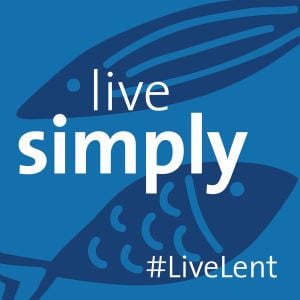 For many of us who grew up in the Church the liturgy is embedded into our being. We sit. We stand. We kneel. We respond “and with your spirit” at the appropriate times. There is a comfort in hearing the Apostles Creed echo throughout the sanctuary as we collectively declare the words aloud in a rhythmic cadence. There is a comfort in the shuffling and creaking of the pews as we collectively move our bodies in worship. As somebody who has waxed and waned in my church attendance throughout the years, I am always in awe that despite months away, my body is able to anticipate the next moments of the Mass like a familiar dance.
For many of us who grew up in the Church the liturgy is embedded into our being. We sit. We stand. We kneel. We respond “and with your spirit” at the appropriate times. There is a comfort in hearing the Apostles Creed echo throughout the sanctuary as we collectively declare the words aloud in a rhythmic cadence. There is a comfort in the shuffling and creaking of the pews as we collectively move our bodies in worship. As somebody who has waxed and waned in my church attendance throughout the years, I am always in awe that despite months away, my body is able to anticipate the next moments of the Mass like a familiar dance.
In the past few weeks, we have received an onslaught of crucial emails from the administration at Yale regarding the Coronavirus. Many of these emails refer to the situation as unprecedented—never been done or known before. In-person classes are cancelled. Students are forced to leave campus and return home (despite many creating their home here in New Haven). Small businesses are struggling to thrive. Grocery stores are experiencing a shortage of goods. Graduating students are devastated by the abrupt ending to their experience at Yale. Many are worried about their loved ones or their own health due a compromised immune system.
There is so much uncertainty in our community right now. And while in the past we may have sought comfort in the familiar ritual of attending Mass on Sunday mornings, even that feels different. For the foreseeable future we will say the Apostles Creed aloud to an empty room and awkwardly stand and kneel alone next to our dining room tables as we watch a live stream of the Mass on our laptops.
Lent is a liturgical season when we intentionally confront our failures and the limitations of our humanity. At the end of Lent is Easter—a season of hope, joy, and celebration. Because our bodies are so quick to anticipate the next moments in the liturgy, we too often anticipate the hope of Easter during our observation of Lent. But what if we observed Lent as if we did not know that Easter was coming? How would this change what our Lent looks like? There are times when the familiarity of the liturgy provides great comfort, but there are also times when we merely go through the motions complacently because we know what happens next. The season of Lent should challenge us and lead us to confront ourselves, our world, and how we inhabit it.
This public health crisis has forced many people across the country to confront our failures. The failures of our health care system. The failure of our country to provide adequate sick leave. The failures of a racist and classist system which allows those with privilege to work from home while others must continue to risk their health to make a livelihood. In this unprecedented time no one can say for certain what the next several months will look like. We do not have the guarantee of Easter. Thus, we are left sitting in the messiness of these systemic failures—wondering when (or if) they will ever resolve. For those with privilege, these exposed injustices are shocking and uncomfortable to sit with. For those of us who have continuously been pushed to the margins of society, there is an intimate familiarity with these injustices. Let this Lenten period-- and beyond-- lead those of you who are confronting these failures for the first time to join in and follow the lead of the marginalized who have been fighting tirelessly against these injustices for years. Let us use this time to confront these societal failures (and our roles within them) as we work toward the spirit of Easter-- even if we are uncertain of when Easter will come.



